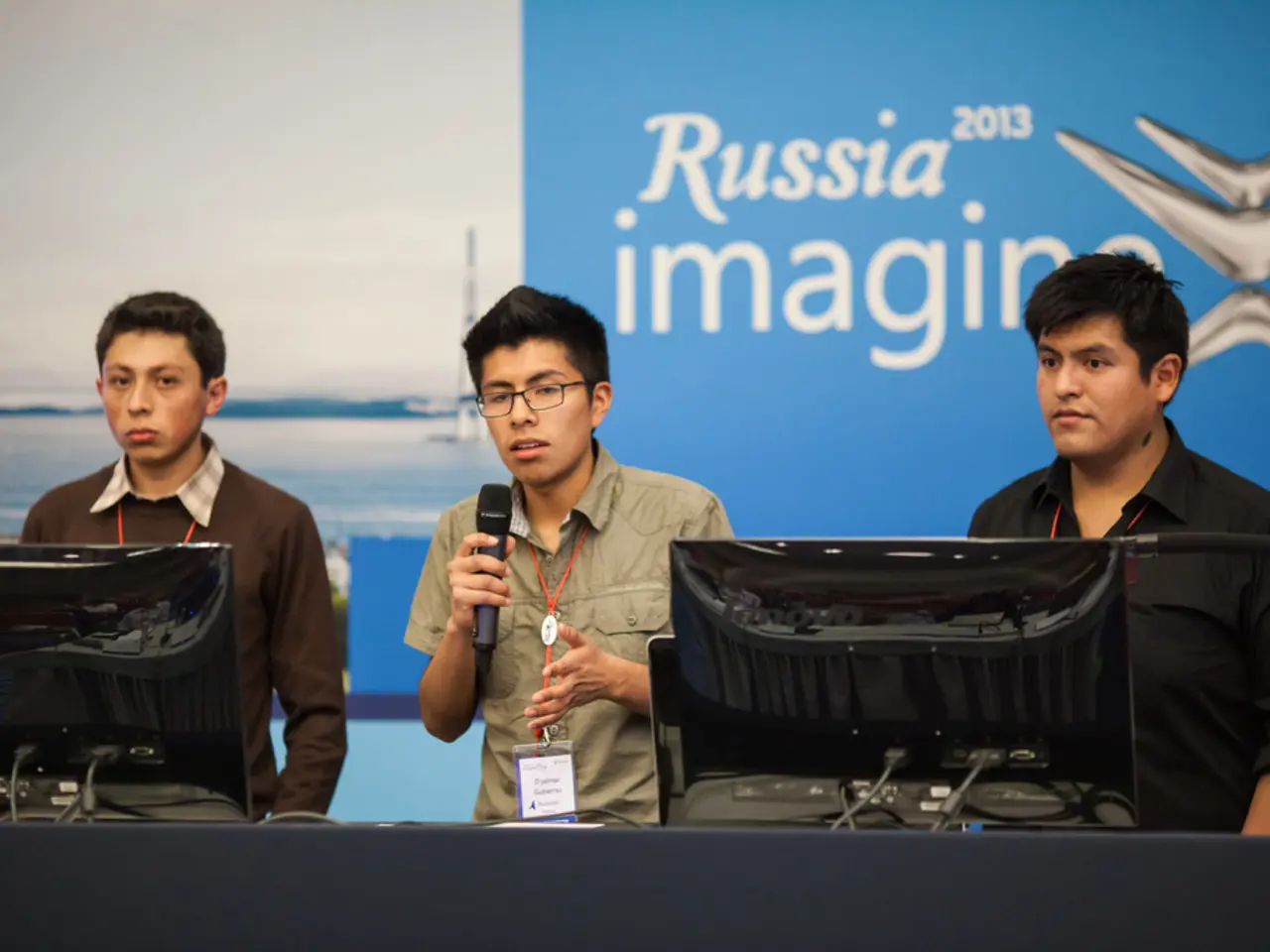"Roskomnadzor's Actions Against Telegram and WhatsApp Explained: Experts Discuss the Motivations Behind the Enforced Regulations"
In a recent development, Roskomnadzor, Russia's federal service for supervising communications, information technology, and mass media, has partially restricted calls on popular messaging apps Telegram and WhatsApp. The move is aimed at curbing crime and terrorism-related abuses on foreign platforms that do not comply with Russian laws or cooperate with state agencies.
The decision comes after a series of investigations that revealed these messaging apps, particularly Telegram and WhatsApp, have become hotbeds for fraudulent calls, scams, extortion, and recruitment into terrorism and sabotage. The restrictions are officially justified as an "anti-fraud measure" to protect Russian users and counter criminal activity, based on law enforcement information.
Experts, including Armen Gasparyan, a member of the Public Council under the Ministry of Digital Development of Russia, and Mikhail Shurygin, chairman of the ROTCIТ commission on cloud technologies, hosting, and information security, have voiced their support for the measures taken by Roskomnadzor. They argue that the platforms had sabotaged rules by bypassing traditional operator networks for call functions.
Arthur Shlykov, chairman of the All-Russian Public Movement "Civil Committee of Russia," went as far as to call Telegram a nest of criminality. He stated that both Telegram and WhatsApp have space for criminal activity. Boяrsky, Russian State Duma Deputy Chairman, justifies the partial restriction of calls in messengers, stating that it is a timely and correct measure as scammers find it easier to mislead people using calls in these services.
Despite the restrictions, Armen Gasparyan believes that transition to domestic alternatives is a matter of habit, not a necessity. He suggests that there are "excellent alternatives" to Telegram and WhatsApp in Russia today. In fact, the government has been promoting the use of a newly launched government-backed "super app" Max, modeled partly on China’s WeChat.
However, it seems that neither Telegram nor WhatsApp have complied with Russian legislation, according to the Ministry of Digital Development. Pavel Durov's application for Telegram registration with Roskomnadzor has not been received, as measures have been taken against the service. WhatsApp belongs to Meta, which is banned in Russia and recognized as extremist.
In contrast, Sergei Boяrский emphasizes that Russia needs to combat the phenomenon of fraud itself, not specific platforms. He believes that full blocking of the messengers is currently not an option, only possible with the creation of a quality alternative where "our rules apply."
Our website offers the opportunity to subscribe to a Telegram channel for the latest news on this developing story. We have sought expert opinions on the matter, and their comments are included in this agency report. Stay tuned for more updates.
[1] https://www.roscomnadzor.ru/media/roscomnadzor/documents/roscomnadzor_ru/press_center/releases/2022/02/20220210_1130.pdf [2] https://www.bbc.com/russian/business-60367856 [3] https://www.reuters.com/world/europe/russias-roskomnadzor-partially-restricts-calls-telegram-whatsapp-2022-02-10/ [4] https://www.rferl.org/a/russia-telegram-whatsapp-calls-blocked-russian-fraud/31698128.html
Read also:
- U Power's strategic collaborator UNEX EV has inked a Letter of Intent with Didi Mobility to deploy UOTTA(TM) battery-swapping electric vehicles in Mexico.
- Global Gaming Company, LINEUP Games, Moves Into Extensive Global Web3 Multi-Platform Gaming Network
- Gold nanorod market to reach a value of USD 573.3 million by 2034, expanding at a compound annual growth rate (CAGR) of 11.7%
- Rebuilding Obstacles: The Complexities of Revamping: Part 2




